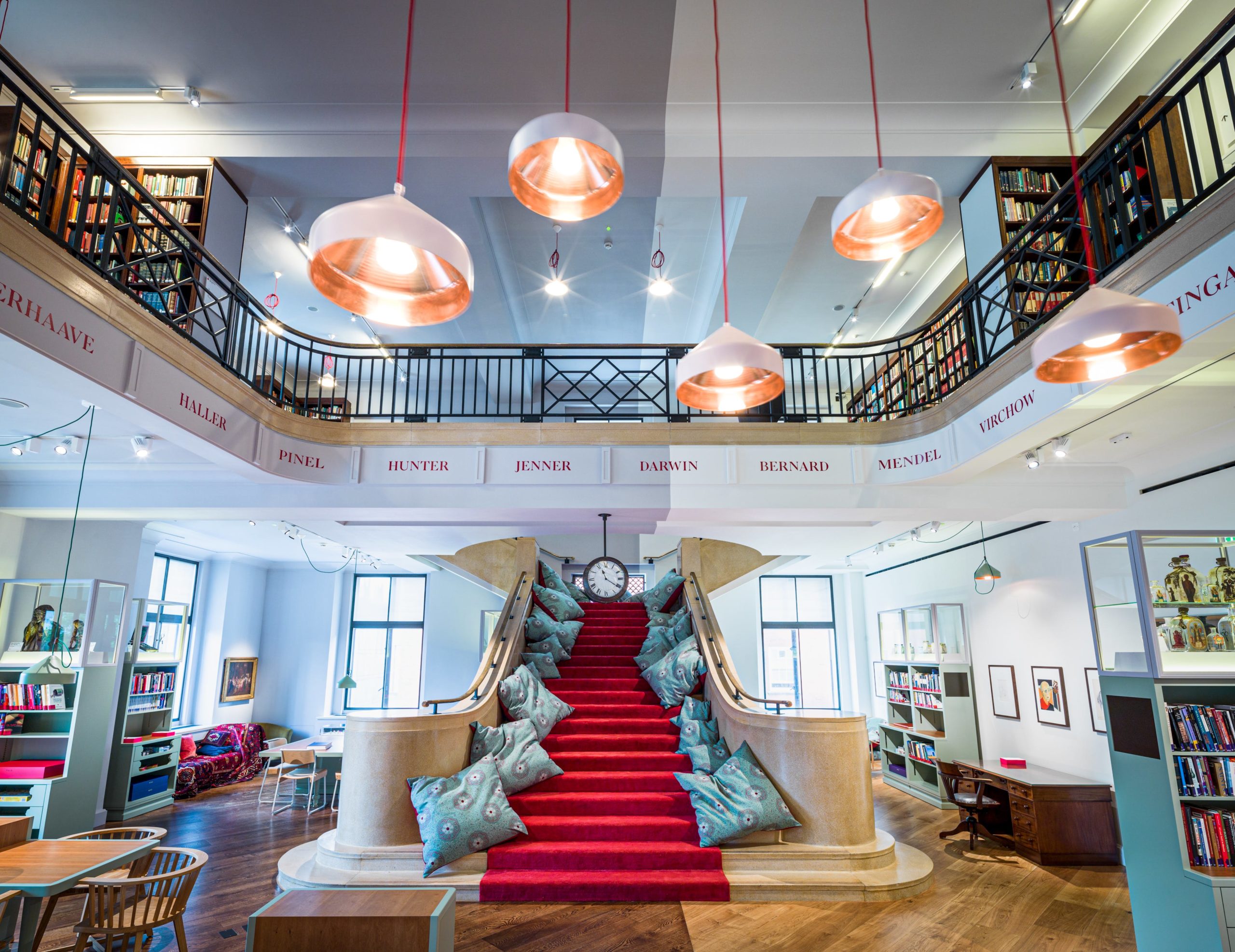Whilst visiting London, Cedric wanted to find an art gallery near London Euston. He suggested the Wellcome Collection. Unbeknownst to him, the Wellcome Trust funds the Sanger Institute, one of the world’s leading centres for genomic science. I just so happened to forget to mention and (probably for the last time), was able to drag Cedric around a wonderful museum and library centered around Human Health.
Founded by Sir Henry Wellcome, the Wellcome Trust has aimed to improve health by investing in researchers who are focussing on the most prescient threats to global health. Whilst, simultaneously, educating the public on the importance of medical scientific research. The museum certainly reflected this. Although, the Play-Well Exhibition which is running until March 2020, was somewhat confusing and underwhelming. Seemingly showcasing the way in which children play and the media in which they do so has changed over time, with imagination seemingly fading and digital entertainment captivating the younger generations.
Most interesting, for me, was the permanent exhibition “Being Human.” Within, it showcased the ins and outs of human health. Including a transparent 3D anatomical model of a woman in which the organs would illuminate when you press the corresponding button, a valuable and engaging educational tool that all ages were interacting with, even if they don’t know what the cecum is…
An eye-opening piece within this exhibition demonstrated bacteria generating antibiotic resistance to exceedingly high doses within 11 days. An incredibly pressing matter as bacteria are becoming increasingly resistant to treatment due to the misuse of antibiotics, so it was refreshing to see an exhibition drawing attention to that.
However, the Wellcome Collection had other exhibitions such as “Medicine Man,” demonstrating medicine’s evolution throughout history. It was certainly worth a mooch, but not for the squeamish as there is a mummified body.
Cedric was most delighted with the library and reading room which sits at the top of this museum, it boasts hundreds of books all pertaining to human health and even has some exhibition pieces including a sliver of anatomist Dr. Gunther Von Hagen’s human dissection work, which demonstrated the complexity and beauty of the human body.
Overall, this was a brilliant museum which opens your eyes to the evolution of medicine, and how that had led to the research being conducted today. I would wholeheartedly recommend the Wellcome Collection if you’re ever around London Euston.



